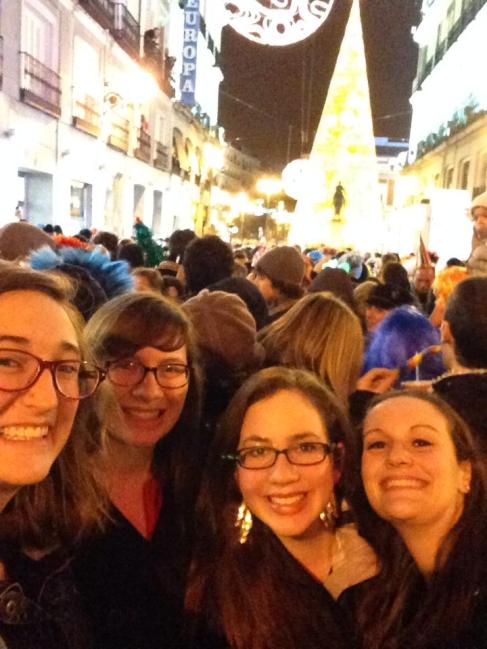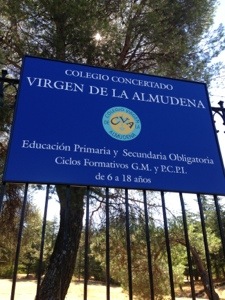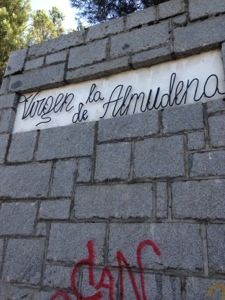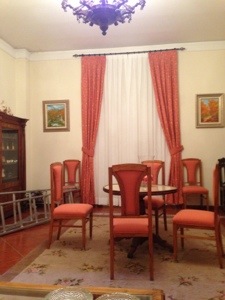New York may be the self-proclaimed city that never sleeps, but Spain is the country that never sleeps (except for, of course, the occasional siesta). As a huge night owl, I couldn’t be more comfortable living here. The main thing that sets Spain apart from the US (and most other Western countries) is the meal times. For example, lunch. When I first got my work schedule way back in September, I noticed that I had a break every day from 11:30 – 12:00. Being a naive norteamericana, I assumed this was my lunch break. WRONG.
Spanish kids (and teachers) have a snack at 11:30 and then a half-hour recess. At least at my school, lunch isn’t until after all classes are done for the day, right before the kids go home. That’s 2:15 on early days, or 2:45 on late days. 2:45! Could you imagine telling parents in the US that their kids couldn’t eat until 2:45 pm? There would be lawsuits (joking. kind of).
BUT lunch is the main meal of the day here. I eat with other teachers in the cafeteria almost every day, and in addition to two main courses (the first is usually soup/pasta, the second is usually fish/meat), we get salad, bread, yogurt, fruit, coffee, and cookies. It’s basically the equivalent of eating a big dinner in the middle of the afternoon.
Spanish dinner time isn’t until at least 9, maaaaybe 8 if you’re eating early. This sounds crazy, but when you consider how long you’re full from lunch, it’s really not a big deal at all. I actually LOVE it because I don’t have to plan my evenings around dinner. I get home from work, usually leave my apartment for a few hours to do private lessons/ go to Spanish class/ explore Madrid, and then come home to “cook” and eat before showering and going to bed. I feel like I have much more flexibility and free time because of it, and I’m going to try really hard to keep eating at Spanish dinner time when I move back to the US.
People also go out way later here. I mean, you kind of have to if you don’t finish dinner until 10 or 11. Midnight is a normal time to go to the bars, and most clubs won’t even open until 2 am. For emphasis: Spanish clubs open at the same time that American clubs close. Though I don’t like to do it too often because it really ruins the next day, it’s totally normal to stay out until 6 or 7 am. In fact, there’s even a Spanish word for the wee hours of the night: madrugada. As far as I know, we don’t have an English equivalent for this.
Also worth noting: while traveling in smaller towns, I have seen tiny kids in restaurants/bars past midnight, and an elderly man tearing it up in a discoteca at 4 am.
Despite Spain’s tendency to stay up all night, they don’t really compensate for it in the mornings. In my experience, everything starts up at around the same time as it would in the US. Also, siestas really aren’t as common as you’d think. I’ve heard that it is more common to take mid-afternoon naps in other regions/cities, but in Madrid not so much. I, however, am definitely guilty of the occasional siesta — kids are exhausting!
Madrid’s late-night tendencies are perfect for my twenty-something lifestyle, and it will definitely be an adjustment to go back to doing everything earlier in the US. My question is though, how do people keep this up their entire life?? Maybe it’s all the café con leche, or maybe Spaniards are just genetically evolved to need less sleep. Either way, no complaints here!





